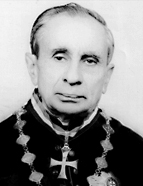

Particularly in the latter, he expanded his studies on the history of ecclesiastical institutions, aligning with the focus of his academic training. This interest continued with his work at the Centro de Estudos Históricos da Universidade de Coimbra and later at the Centro de História da Sociedade e da Cultura [Centre for the History of Society and Culture], where he directed Linha 3: Publicação de fontes [Line 3: Publication of Sources.] His efforts resulted in works that significantly enriched the institution and led to discussions of a "Coimbra school" regarding its teaching methodologies. In 1992, the Sociedade Portuguesa de Estudos Medievais honoured him by reissuing a collection of six works, previously out of print or difficult to access, in its own volume titled Estudos de Cronologia, Diplomática, Paleografia e Histórico-Linguísticos [Chronology, Diplomatic, Palaeographical and Historical-Linguistic Studies). This collection exemplified his extensive experience as a researcher.
AJC's intellectual biography is closely linked to his origins and his status as a priest in the Church in Braga. At the end of the 1930s, after writing several articles in the Diário do Minho about the controversial naturalisation of the brothers Diogo Bernardes and Frei Agostinho da Cruz, he published his first study. In the Boletim Diocesano Acção Católica [Catholic Action Diocesan Bulletin] (1938-1940), AJC argued and demonstrated that these important 16th-century poets in Portuguese literature were born in Ponte da Barca, not Ponte de Lima.
From this early phase of scientific research, it is clear that the young author was searching for the truth, giving voice to original documents and choosing the path of historical criticism to support his beliefs. However, it should be noted that these early works did not foreshadow the chronological focus that AJC would embrace during nearly six decades of tireless didactic, pedagogical, and scientific labour. In fact, it was the Middle Ages, spanning the ninth to the fifteenth century, that Fr Avelino chose to study — editing palaeographic sources, writing monographs, organising congresses, and delivering lectures and "lessons in wisdom."
